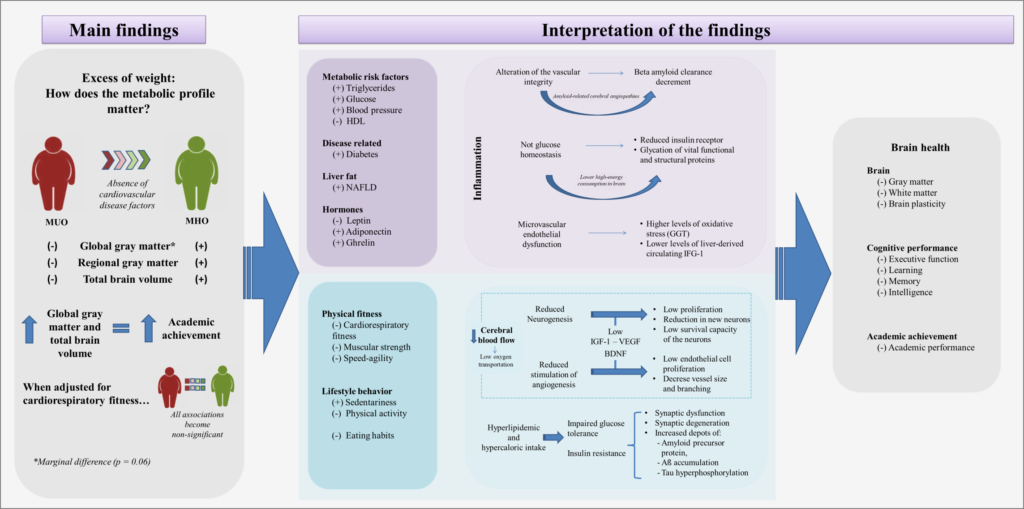
Childhood obesity is one of the major health concerns as it has reached epidemic proportions worldwide. These are alarming results since an excess of fat mass has well-known comorbidity with other physical health parameters. However, there is a subset of the population, referred to as metabolically healthy overweight/obesity (abbreviated as MHO), who do not have these metabolic abnormalities. The MHO phenotype is defined as an excessive body weight based on the body mass index (BMI) cut points, but otherwise does not meet any other metabolic syndrome criteria (i.e., triglycerides, glucose, high-density lipoprotein, and systolic and diastolic blood pressure) except for waist circumference. Recent systematic reviews and meta-analyses have concluded that MHO individuals are at a higher risk of cardiovascular mortality and morbidity than those who are metabolically healthy normal-weight. However, it has been shown that variability in cardiorespiratory fitness could at least partially explain these effects. Within the same weight status, MHO individuals are characterized by having lower amounts of visceral adipose tissue and adipose cell size, as well as higher cardiorespiratory fitness and physical activity levels, than metabolically unhealthy overweight/obesity (MUO). Nevertheless, whether metabolic differences between MHO and MUO may also extend to brain and academic achievement in young individuals remained unexplored.
In our study, we investigated for the first time, the role of cardiorespiratory fitness in the association of the MHO phenotype with brain and academic outcomes. Our results support the argument that MHO children have greater gray matter and total brain volume than their MUO peers, which was in turn related to better academic achievement in children aged 8–11 years old. These findings support the notion that metabolic abnormalities might negatively influence brain development in a sensitive period of growth. Our data also indicate that cardiorespiratory fitness might play an important role in the differences observed in the brain between both metabolic phenotypes.
Complete reference
Cadenas-Sanchez C, Esteban-Cornejo I, Migueles JH, Labayen I, Verdejo-Román J, Mora-González J, Henriksson P, Maldonado J, Gómez-Vida J, Hillman CH, Erickson KI, Kramer AF, Catena A, Ortega FB. Differences in Brain Volume between Metabolically Healthy and Unhealthy Overweight and Obese Children: The Role of Fitness. J Clin Med 2020 Apr 8.



